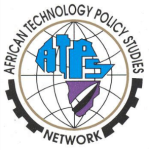Science Ethics and Technological Responsibility for Developing and Emerging Countries (SET-DEV), EC Framework 7 Grant Agreement Number 217811, ( 2008 – 2011)
SETDEV Program Summary
Program Duration: 2008 – 2011
Program Contacts: Dr. Kevin Urama, Executive Director, ATPS
Email Contacts: executivedirector@atpsnet.org & SETDEV@atpsnet.org
Project Coordinator: Dr. Alfonso Alfonsi, LSC
Email Contact: alfonsi_alf@yahoo.it
ATPS is the leading African partner in the collaborative SETDEV project involving 11 key partners in Africa, India and Europe. The European Commission (DG Research) is funding the Coordination Action “Science, Ethics and Technological Responsibility in Developing and Emerging Countries” within the context of the Seventh Framework Programme for technology research and development. The Coordination Action aims to support the research systems in two countries – India (an emerging economy) and Kenya (a developing country) – a socialization of scientific and technological research (STR). The project is coordinated by the Italian National Research Council (CNR) and participated by a consortium including partners from India, Kenya and Europe: Laboratorio di Scienze della Cittadinanza – LSC; Universiteit Maastricht; Minerva Consulting & Communication Sprl.; University of Central Lancashire (LBS and CLICT); Max Delbrueck Centrum fuer MolekulareMedizin; African Technology Policy Studies Network; University of Hyderabad, Department of Sociology, School of Social Sciences; Lunds Universitet; Centre for World Solidarity; Intermedia NCG.
The three-year project will involve a series of activities between SET-DEV partners including study coordination, experimentation, and awareness raising initiatives to meet the following objectives:
- Strengthening the levels of information and awareness on critical scientific and technological issues by fostering a dialogue among scientists from Europe, India and Africa;
- Activating processes of building institutional capacities and skills on science, ethics and socialization of scientific and technological research, in the context of a more general assumption of responsibility over research processes (technological responsibility);
- Developing measures and guidelines which are sensitive to and compatible with local values and needs, and to the characteristics and the degree of development of local research systems;
- To define perspectives of socialization of science and technology that take into consideration local needs and are in compliance with EU standards in ethics.
The project will run through 4 interconnected stages:
- collection of appropriate elements of knowledge on the level of socialization of STR in India and Kenya;
- enhancement of a dialogue between networks of European and non-European researchers generating two “national manifestos” (in Kenya and India) on the themes of ethics and science. Initially the manifesto was targeted specifically at two countries – India and Kenya, however a strong demand for an African Manifesto during the early stages of the project created a need for widening the scope to cover the whole of Africa;
- implementation of two pilot program (in India and Kenya), centered on actions of public dialogue, capacity building and training on the themes; and
- preparation and dissemination of policy guidelines.
Program Output: African Manifesto for Science, Technology and Innovation
Program Partners
Related Program News
- Dr. Wiebe Bijker talks about the manifestos in an interview with the New Indian Express newspaper
- The African Manifesto on Science, Technology and Innovation receives Praise at the Royal Society in London
- The SETDEV capacity building workshop: African Science and Technology, for Africans, by Africans in Africa

